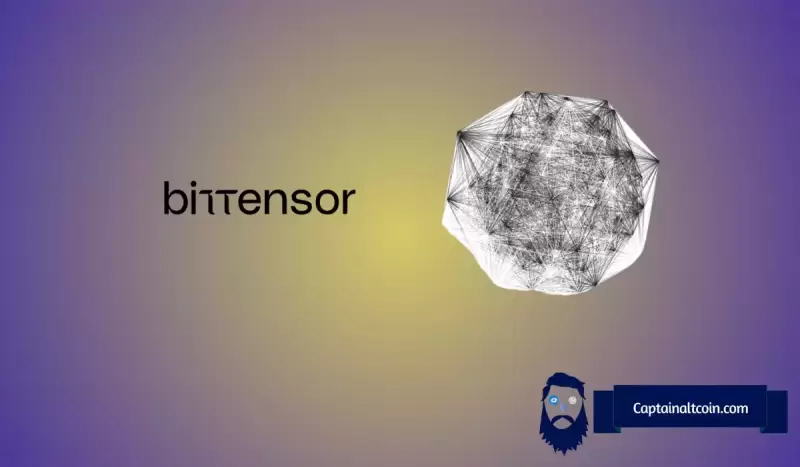 |
|
 |
|
 |
|
 |
|
 |
|
 |
|
 |
|
 |
|
 |
|
 |
|
 |
|
 |
|
 |
|
 |
|
 |
|
Cryptocurrency News Articles
Quantum Computing Resurfaces as a Growing Risk for Bitcoin's Long-Term Resilience
Jan 09, 2025 at 12:30 pm

Rapid advancements in quantum computing technology have sparked renewed concerns within the cryptocurrency sector, particularly regarding the long-term resilience of proof-of-work (PoW) blockchains like Bitcoin.
On-chain data analytics platform CryptoQuant recently highlighted these risks in a series of posts on X, focusing on two critical aspects: Bitcoin mining security and private key vulnerabilities.
As quantum technologies progress, both present significant challenges to the cryptocurrency landscape.
Quantum Threats to Bitcoin Mining and Network SecurityBitcoin's PoW system relies heavily on computational power to validate transactions and secure the network. The SHA-256 hash function, central to Bitcoin mining, currently ensures strong security by making it extremely difficult for malicious actors to tamper with the blockchain.
However, CryptoQuant warns that quantum algorithms, particularly those leveraging advanced algorithms like Grover's, could substantially "accelerate hash-solving processes."
If quantum computers become capable of outperforming classical mining hardware in this aspect, it could drastically alter the power dynamics in mining.
Quantum-equipped miners would gain a significant advantage in block validation, potentially leading to a scenario where they dominate the mining process. Such an occurrence would not only disrupt network consensus but also compromise Bitcoin's decentralized structure.
To mitigate these risks, CryptoQuant emphasizes the importance of maintaining a significant share of non-quantum computing hash power in the network. A diverse and healthy mining ecosystem would ensure that no single entity, whether quantum or otherwise, can gain disproportionate control.
This aligns with the decentralized ethos of Bitcoin and ensures its long-term resilience in the face of evolving technological advancements.
As quantum computing continues to advance, it remains crucial for stakeholders, including miners, developers, and the broader crypto community, to closely monitor these developments and take necessary steps to secure the Bitcoin network.
Private Key Security: Vulnerabilities And AdaptationsBeyond mining, quantum computing also presents risks to the security of private keys used in cryptocurrencies like BTC. The Bitcoin network utilizes cryptographic systems to secure wallets and transactions, with public and private keys forming the basis of ownership.
According to CryptoQuant, Shor’s Algorithm could theoretically enable quantum computers to deduce private keys from public keys, thereby rendering cryptographic systems used in Bitcoin vulnerable.
Particularly at risk are Pay-to-Public-Key (P2PK) addresses, where the public key directly serves as the wallet address. In contrast, Pay-to-Public-Key-Hash (P2PKH) addresses provide an additional layer of security by hashing public keys.
However, when BTC from these addresses is transferred, the public key is exposed, increasing susceptibility to quantum attacks. CryptoQuant also observed a notable increase in P2PKH address usage, rising by 14% in recent months.
While the exact cause of this shift is unclear, it suggests heightened awareness and caution among Bitcoin holders regarding quantum vulnerabilities.
Disclaimer:info@kdj.com
The information provided is not trading advice. kdj.com does not assume any responsibility for any investments made based on the information provided in this article. Cryptocurrencies are highly volatile and it is highly recommended that you invest with caution after thorough research!
If you believe that the content used on this website infringes your copyright, please contact us immediately (info@kdj.com) and we will delete it promptly.
-

-

-

-

- Bittensor (TAO) Finally Breaks Out: Is This the Start of a Major Upside Move?
- Apr 12, 2025 at 07:55 am
- The Bittensor token has shown promising technical signals as it completes a bullish reversal pattern. With key resistance levels now broken, TAO appears poised for significant upward movement in the coming days. By Rakesh Sharma.
-

-

- TLGY Moves Toward $100M ENA Token Deal With Ethena
- Apr 12, 2025 at 07:50 am
- In a strategic push into crypto infrastructure, Cayman Islands-based SPAC TLGY has signed a non-binding letter of intent with the Ethena Foundation to acquire a validator business and potentially buy up to $100 million in ENA tokens.
-

- Global crypto exchange Binance opened spot trading for ONDO, BIGTIME, and VIRTUAL today, April 11, at 14:00 UTC.
- Apr 12, 2025 at 07:45 am
- This action moves the tokens from Binance Alpha to the main Spot Market, though “Seed Tags” will be attached reflecting their newer status and associated risk factors.
-

-






























































